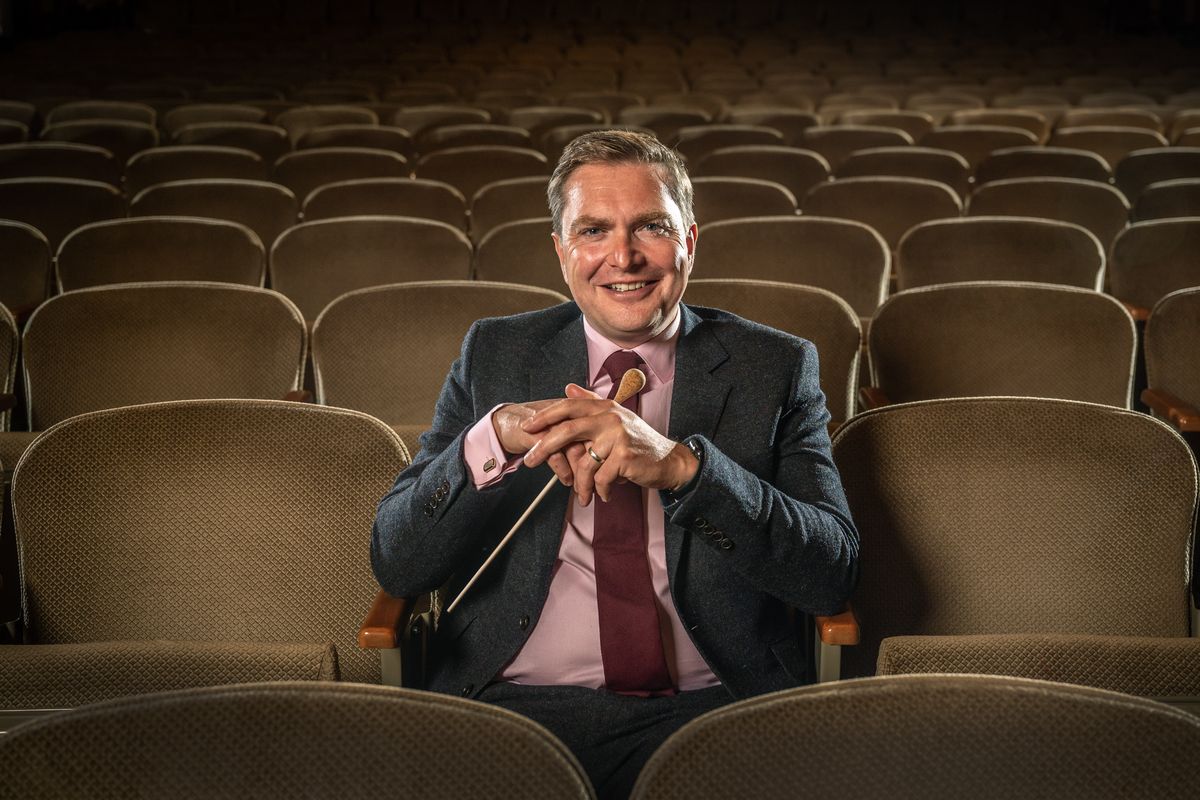Spokane Symphony’s Masterworks 2 is all Beethoven and Beethoven-inspired works

Continuing what would have been last year’s celebration of Ludwig van Beethoven’s 250th birthday, the Spokane Symphony’s Masterworks 2 concert program will feature all Beethoven and Beethoven-inspired works.
While programming the concert, symphony music director James Lowe was determined to fill the concert with more than Beethoven’s most popular works.
“I want to share the other sides of Beethoven,” Lowe said. It’s easy to get stuck in stereotypes when it comes to composers like Beethoven, “the idea that he was this fiery genius … an electrical storm at all times.
“And I think we miss this other side … this extraordinarily sensitive and beautiful side of him that really makes him a genius.”
At the top of the program, the Spokane Symphony Chorale will join the orchestra to perform Beethoven’s “Calm Sea and Prosperous Voyage.”
The program continues with a reading of the “Heiligenstadt Testament,” a letter Beethoven wrote to his family finally explaining his deteriorating condition.
“Losing his hearing was a horrible thing for him, but … I actually think it was the greatest advantage he had as a composer,” Lowe said. “It forced him into his own internal world.”
Before losing his hearing, Beethoven made the majority of his money from performing. But as his hearing worsened, he turned more to composition.
He was never totally cut off from other people’s work, Lowe explained. He could still pick up any score and hear it played over in his head.
But when it came to his own work, “he could go to places that nobody else could,” Lowe said. “When you look at the late period, the late style that he writes in, he’s going places that it took generations for other composers to catch up to.”
Local opera star Derrick Parker will read the letter aloud before the orchestra follows with the only piece in the program not written by Beethoven, Rodion Shchedrin’s “Beethoven’s Heiligenstadt Testament.” A symphonic fragment for orchestra inspired by the letter, Shchedrin weaves fingerprints and fragments from Beethoven’s work into a commentary on the composer’s reaction to his impending death, Lowe said.
Continuing the mortal theme, the Spokane Symphony Chorale will perform Beethoven’s “Elegischer Gesang (Elegiac Song)” before Parker returns to read another letter of Beethoven’s. This second letter, found after his death, was addressed simply “to my immortal beloved.”
“We still don’t know exactly who she was,” Lowe said. “But we do know that he was never lucky in love, he never married, he never had any kind of stable relationship as we would kind of think of it.”
Regardless, the text gives another intimate glimpse into the composer’s inner life.
Nearing the end of the program, tenor William Ferguson will join the orchestra onstage to perform an orchestral arrangement of “An die ferne Geliebte (To the Distant Beloved).”
“It’s some of his most beautiful music,” Lowe said. “It’s so soft and heartfelt … it really contrasts with this idea of the ‘hair on fire’ genius.”
In that spirit, wanting to end on a joyful note, Lowe chose Beethoven’s “Symphony No. 4, op.60, B-flat major.”
“If any other composer had written Beethoven’s fourth symphony, it would have been their greatest work,” Lowe said. But, bookended by his famous third and fifth symphonies, Beethoven’s fourth became a masterpiece among masterpieces.
“Beyond that fiery surface, there is this extraordinary depth of humanity in his music … almost more than any other composer, he really encapsulates the entire range of human emotion,” Lowe said. “He can have these moments of real range and drama, but he also has this incredibly sweet, soft, sometimes melancholic side … all these emotions … totally relevant to modern life as much as they were to 19th century Vienna.”